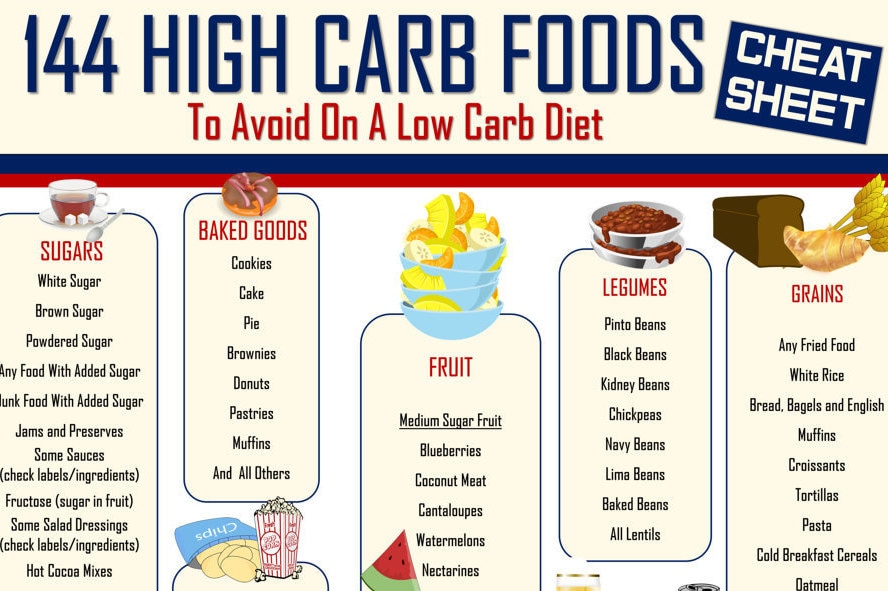Buzz Haven: Your Source for Trending Insights
Stay updated with the latest buzz in news, trends, and lifestyle.
Carbs: Your New Best Friend or Just a Fad?
Discover the truth about carbs! Are they your new best friend or just a passing fad? Uncover the delicious secrets now!
Understanding Carbs: The Science Behind the Debate
Understanding carbs is crucial in today's diet debates, as they have often been labeled as detrimental to our health. At their core, carbohydrates are organic compounds made up of carbon, hydrogen, and oxygen. They are one of the three macronutrients, alongside proteins and fats, that provide energy to our bodies. Carbs are categorized into two main types: simple and complex. Simple carbs, found in sugars like glucose and fructose, are quickly absorbed for immediate energy, while complex carbs, like those in whole grains and vegetables, provide a steadier energy release due to their fiber content. Understanding these differences is vital in making informed dietary choices that align with individual health goals.
The debate around carbs often centers on their role in weight management and overall health. Some diets, like the ketogenic diet, promote a low-carb approach, arguing that it aids in fat loss and stabilizes blood sugar levels. However, scientific research has shown that not all carbohydrates are created equal. Foods rich in complex carbohydrates, such as legumes, whole grains, and starchy vegetables, offer essential nutrients and fiber that can promote satiety and improve digestive health. Thus, recognizing the distinctions between various carb sources is key. As we move forward in our dietary choices, embracing a balanced view on carbohydrates can lead to healthier eating patterns and a clearer understanding of how they fit into our lifestyles.

Are Carbs Necessarily Bad? Debunking Common Myths
The idea that carbohydrates are inherently bad for your health is a myth that needs debunking. Carbs are one of the three macronutrients essential for our bodies, providing the primary source of energy for daily activities. In fact, complex carbohydrates found in whole grains, fruits, and vegetables are rich in fiber, vitamins, and minerals that support overall health. It's not the carbohydrates themselves that cause problems, but rather the quality of the carbs consumed. Highly processed and refined carbs, like sugary snacks and white bread, can lead to negative health effects if consumed in excess.
Another common misconception is that cutting out carbs entirely can lead to weight loss and better health. However, such extreme diets can deprive the body of necessary nutrients and lead to energy crashes. It's important to focus on a balanced diet that includes healthy carbohydrates while moderating the intake of simple sugars. Acknowledging the importance of carbs in a balanced diet allows individuals to enjoy their benefits without falling prey to damaging myths. Embracing a variety of nutrient-rich foods will ultimately support a healthier lifestyle.
How to Incorporate Healthy Carbs into Your Diet
Incorporating healthy carbs into your diet is essential for maintaining energy levels and promoting overall wellness. Start by focusing on whole grains, which provide not only carbohydrates but also fiber, vitamins, and minerals. Some great options include quinoa, brown rice, and oats. You can easily swap out refined grains for these nutritious alternatives in your meals. For instance, use whole grain bread instead of white bread or opt for a quinoa salad instead of pasta to enhance your nutrient intake.
Another excellent way to incorporate healthy carbs is by adding more fruits and vegetables to your diet. These foods are rich in vitamins, minerals, and fiber, making them an ideal addition to any meal. Aim to fill half your plate with colorful produce, such as berries, leafy greens, and sweet potatoes. You can also consider making a daily smoothie that includes a variety of fruits and vegetables, ensuring you get a healthy dose of carbohydrates while enjoying a delicious and nutritious snack.